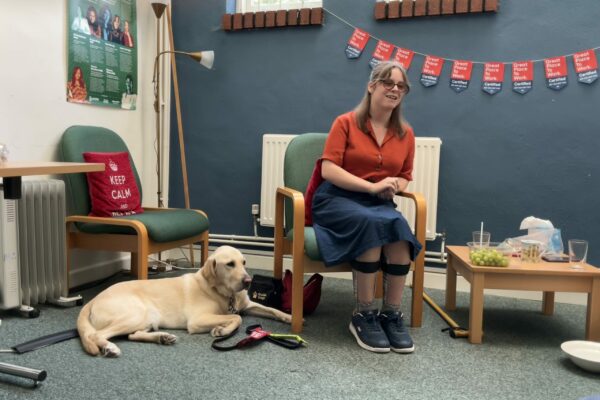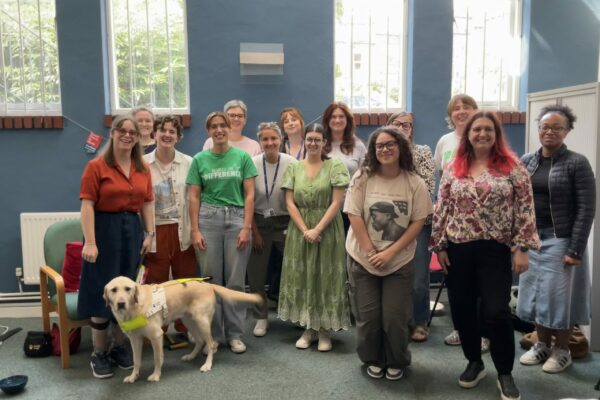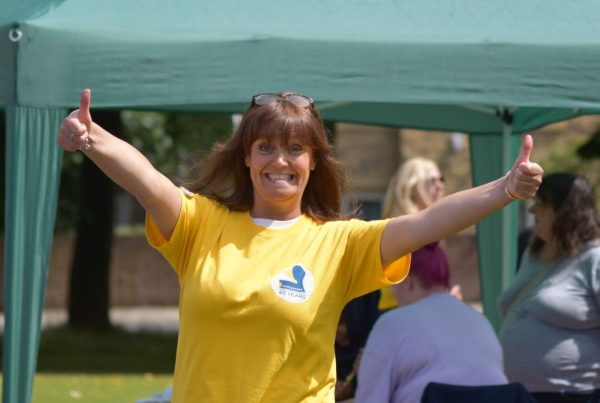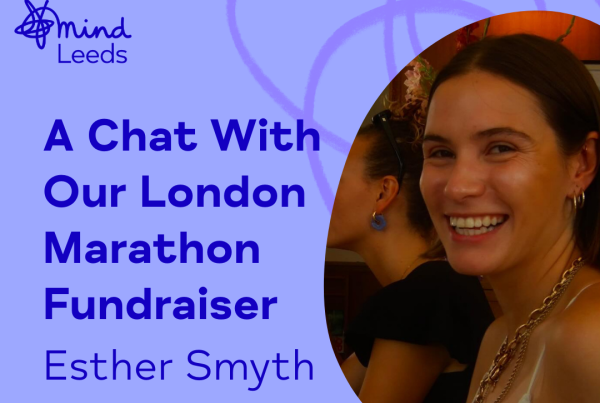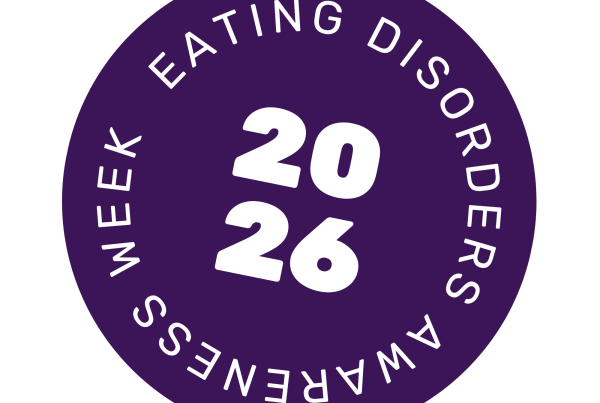July marked Disability Pride Month. At Leeds Mind, we took the opportunity to celebrate the achievements, creativity, diversity and resilience of disabled people.
One of the key messages of Disability Pride is that disability is not something that needs to be fixed or hidden. Our disabilities are part of our identities. We experience the world in diverse ways and that’s something to be celebrated, not shied away from.
Project Assistant on the Leeds Mindful Employer Network, Katie Morris, attended a talk from disability activist, Chloe Tear, as part of Leeds Mind’s Disability Pride Month Activities. Here, Katie reflects on the experience.
“Identifying as disabled myself, Disability Pride Month is important to me, and being able to hear from a disabled creator and activist was a great opportunity. Chloe’s talk was candid, emotive and informative.
My key takeaways from the talk were:
- The charity Guide Dogs does a lot more than simply providing dogs; it is well worth looking into other ways they can support people with sight loss, including advice, guide training for families, and cane skills.
- Chloe shared some helpful tools including: finding local groups for support and socialising, and using AI or other technologies to help make the world more accessible.
- Employers should always listen and trust the disabled person if they state what they need support with. Don’t assume you know what’s best.
- Experimentation with support is helpful in employment; if you can be adaptable and trial adjustments to see what works best, you will be able to get the best out of that person.
- Independence is so beneficial; think how you can support the person to stay in work and to have more independence, rather than giving them less work, or presuming they can’t work.
- Assumptions are frequent about whether people “look” disabled or not. Not all disabilities are visible. People without aids like a cane or guide dog may still face significant barriers — and may have less formal support in place.
My biggest takeaway from this talk, especially in terms of something for employers to reflect on, is not to make assumptions and to approach building a culture of inclusivity and meaningful support through open and collaborative conversations. Openly talk with disabled employees about what they want and need from you. This needn’t even just apply to disabled employees; if you can support every employee this way, it will be extremely beneficial to their mental wellbeing.”
You can read Chloe’s award-winning blog at www.chloetear.co.uk or contact her at chloeltear@gmail.com or on Instagram @Chloe_Tear
Thanks to Katie for sharing her reflections with us.

